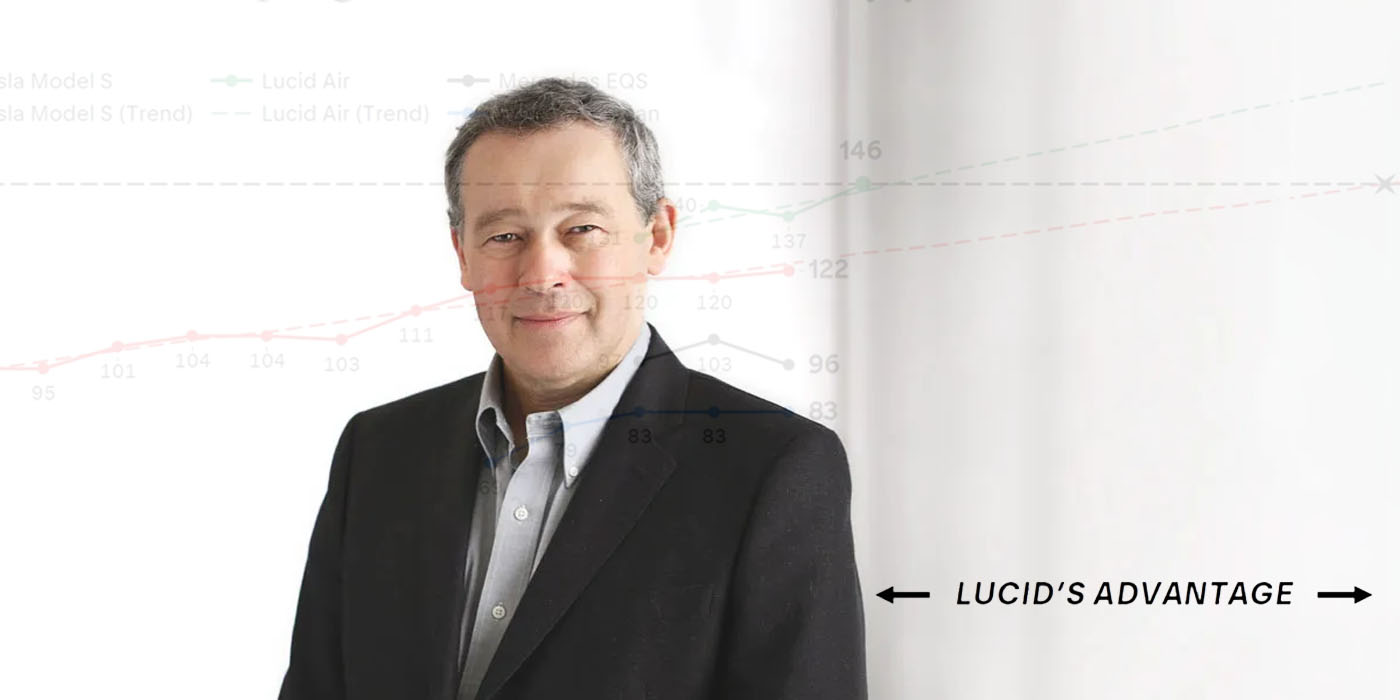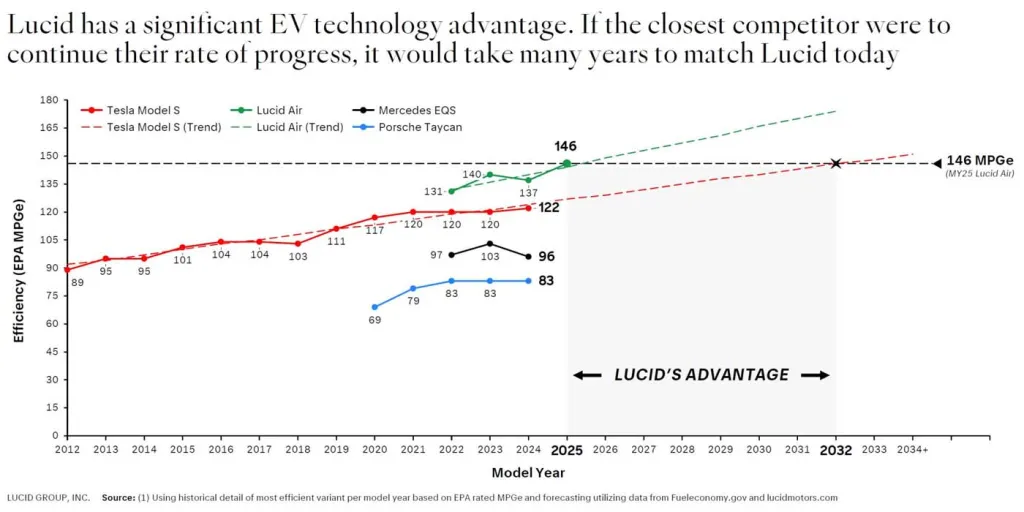
Efficiency, efficiency, efficiency. It’s the most important performance spec to consider when comparing EVs, and Lucid Motors is the global leader. After recently sharing that its flagship Air sedan has earned the title of the most efficient production car in the world, Lucid CEO Peter Rawlinson shared some data that explains just how far ahead the American automaker is and how long it might take its competitors like Tesla to catch up.
It’s been an exciting summer for Lucid Motors ($LCID) – a relatively young EV brand slowly but surely making a name for itself as one of the leaders in technology, innovative luxury, and the almighty gospel of efficiency.
Following a somewhat slow sales year in 2023, Lucid has posted back-to-back record deliveries in the first two quarters of 2024, relaying that it remains on track to reach its annual production target of 9,000 units by the end of the year. Q2 revenue also topped Wall Street’s estimates by an extra $8.2 million, setting the stage for another potential record quarter as the automaker approaches scaled production of its second model – the Gravity SUV, before year’s end.
“Show, don’t tell” has been an effective strategy for Lucid Motors recently. The company’s CEO hinted at an Air model that had achieved an efficiency ratio of 5 miles/kWh in June, following up by saying that none of its competitors are even close to that.
In July, Lucid confirmed its base-model RWD Air Pure was the EV to hit the holy grail 5 miles per kWh milestone, touting it as the most efficient production car in the world. On paper, the Air Pure’s 420 miles of EPA range should wow the average consumer, but those engrained in EVs like ourselves are even more impressed by the sedan’s efficiency and what it means for future models.
Higher efficiency allows for smaller batteries, which lowers Lucid’s production costs and translates to more affordable models for customers. All while still delivering some of the best range in the industry, this is a win-win situation.
Recently, Lucid CEO Peter Rawlinson took to LinkedIn to detail just how far ahead the company is in its technology and even called out some significant competitors to show how long they are projected to take to catch up.

Lucid CEO uses data forecasts to show why it’s winning
As you can see from the data chart from Lucid Motors above, the Air is already close to 25 MPGe ahead of its second closest competitor, the Tesla Model S (an EV that Rawlinson helped design before he took over as Lucid CEO).
Top comment by BF
“Efficiency efficiency efficiency” might be king but it only matters if there’s also affordability affordability affordability
That gap between Lucid and Tesla may not seem that large, but forecasts using combined data from Lucid Motors and fueleconomy.gov estimate the Model S to hit the 146 MPGe mark eight years from now. At the speed at which the EV industry is moving, eight years feels more like 20.
While Tesla is a distant second behind Lucid, luxury EVs like the Mercedes-Benz EQS and the Porsche Taycan are even further behind. As Lucid’s CEO put it back in June, those competitors “aren’t even close.” Per Rawlinson’s LinkedIn post:
It’s interesting to place the significance of this into context by comparing Lucid Air with the most efficient versions of its competitor set, the Porsche Taycan, the Mercedes EQS and the Tesla Model S, and trace trends through respective production periods.
Efficiency is of critical importance in making a better, lighter, more spacious, longer-range vehicle, and directly impacts cost to manufacture. Therefore, efficiency is arguably the single most valid litmus of a company’s core EV technological capability.
You can add (some level of) autonomy, reclining seats, or cheap thrills like “Fart Mode,” but at the end of the day, it’s the most efficient EVs that are going to find the most success in the long run. Based on the details shared by Lucid’s CEO, the automaker has the golden goose, which may propel it to status as one of the world’s most valuable and successful automakers.
These are forecasts, and we do not know what Tesla and Mercedes have going on in their R&D departments. Still, you can bet they have that 5 miles per kWh ratio pinned up on the wall as a daily reminder of where they need to be, but who knows how much Lucid’s technology will continue to improve during that time. At the very least, Lucid is setting the stage for a decade-plus of competition worthy of becoming adapted into historical drama in Hollywood someday.
FTC: We use income earning auto affiliate links. More.



Comments